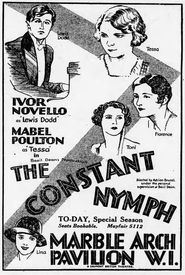Mabel Lilian Poulton, a distinguished English film actress of considerable renown, enthralled British audiences during the early days of cinema, a period marked by the absence of synchronized dialogue, thereby leaving an indelible and lasting impression on the film industry.
Poulton's life took a significant turn when she was born on July 29, 1901, in Bethnal Green, a district in the East End of London, England. Prior to embarking on a career in the film industry, she initially explored the field of stenography. However, her professional path took an unexpected turn when she stumbled into the world of cinema. This serendipitous encounter led her to make her film debut in George Pearson's 1920 silent film, "Nothing Else Matters", alongside Betty Balfour, who was also making her cinematic debut at the time.
As the years unfolded, Poulton's remarkable adaptability and remarkable talent led to a steady stream of diverse roles, frequently portraying spirited or playful characters that captivated audiences. Her diminutive, golden-haired appearance and impeccable sense of style also garnered widespread admiration, cementing her reputation as a celebrated figure, effortlessly transcending the boundaries of mere mortal fame to assume an exalted position within the rarefied realm of celebritydom.
Poulton's cinematic career reached new heights in 1928 with her starring role in Adrian Brunel's "The Constant Nymph", a performance that garnered widespread critical acclaim and recognition.
By the close of the decade, Poulton had firmly established herself as one of Britain's most prominent and revered screen actresses, with her popularity rivaling that of Balfour, and earning praise from critics as her only genuine competitor.
The trajectory of Poulton's remarkable journey in the world of silent cinema was suddenly and dramatically disrupted by the advent of sound film, thereby bringing an abrupt and definitive conclusion to her illustrious career.




















